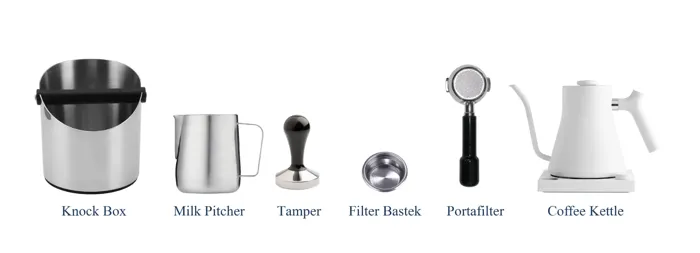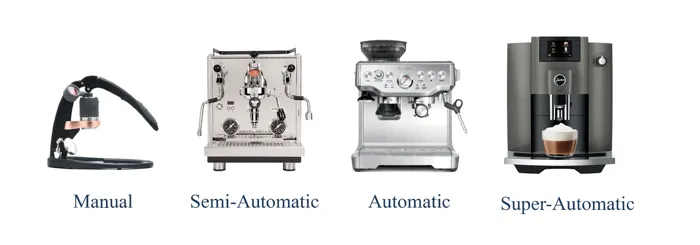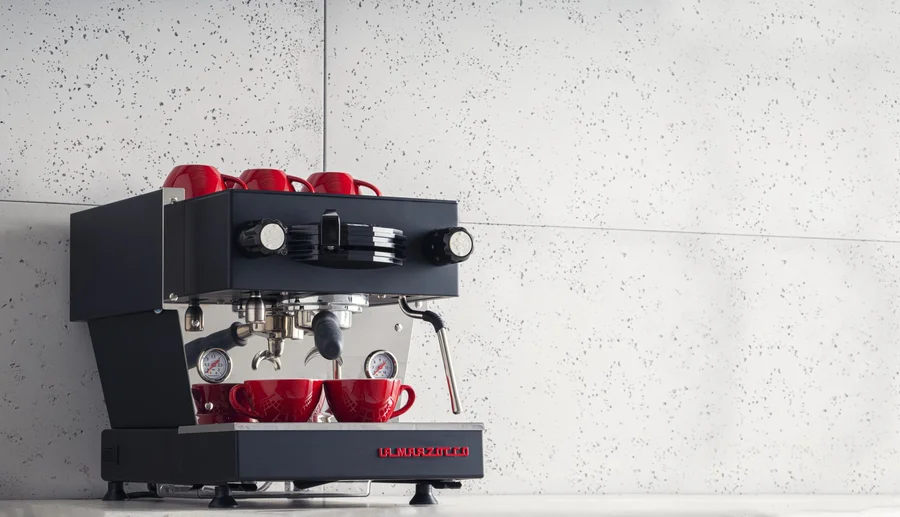Top Espresso Machines Brands Based In netherlands Brands
Here's what we recommend for:
Product Selection
4.7/5
Philips Kitchen Appliances Espresso Machines offer a diverse and technologically advanced product selection, catering to coffee enthusiasts with a range of preferences. From compact and user-friendly models suitable for beginners to high-end machines equipped with innovative features, Philips provides options for various brewing styles. The product selection often includes customizable settings, intuitive touchscreens, and efficient brewing systems, ensuring a delightful and personalized coffee
Availability
4.7/5
Philips Kitchen Appliances, including their Espresso Machines, are widely available, providing easy access for consumers seeking innovative and reliable coffee solutions. You can find Philips Espresso Machines at major kitchen appliance retailers, department stores, and online platforms. The brand's commitment to accessibility ensures that customers around the world can explore and purchase their espresso machines with ease.
Design/Look
4.6/5
Philips Kitchen Appliances Espresso Machines are characterized by a modern and sleek design, seamlessly blending aesthetics with functionality. These machines often feature clean lines, contemporary finishes, and intuitive controls for an attractive and user-friendly appearance. The design of Philips Espresso Machines emphasizes ease of use, with thoughtfully placed buttons and displays that enhance the overall user experience.
Affordability
4.6/5
The pricing may vary based on the specific model, features, and capabilities of the espresso machine. Whether you're looking for a budget-friendly option or a more advanced machine with cutting-edge features, Philips Kitchen Appliances Espresso Machines aim to provide a balance of affordability and performance, ensuring that there's a suitable option for every coffee enthusiast's budget and preferences.
Affordability
4.3/5
Philips offers affordable home espresso machines, with prices ranging from around $200 to $1,200. The brand is known for its ease of use and reliable performance at a competitive price point, especially with its automatic models. While Philips may not offer the same level of customization or advanced features as some higher-end brands, it provides solid quality and ease of use, making it a great option for those seeking a...
Build Quality & Durability
3.9/5
Philips machines feature a sturdy build with a focus on practicality. They are generally reliable for long-term home use, though the durability may not match that of premium brands. With proper maintenance, Philips machines can last for several years, though they may experience some wear more quickly under heavy use.
Range of Machines
3.9/5
Philips excels in the super-automatic espresso machine category with models like the 3200 Series, focusing on convenience and ease of use. Their machines cater to a broad audience with fully automatic brewing and milk frothing at competitive prices. However, their lineup lacks manual and semi-automatic options, limiting variety for users seeking more control.
Design & Appearance
4.3/5
Philips machines, sport a modern and compact design with clean lines and matte finishes. The user-friendly interfaces and minimalistic exteriors ensure they fit well in contemporary kitchens. Meanwhile having a practical and functional design, Philips espresso machines offering incredibly modern and futuristic aesthetics that complement modern kitchens.

Futuristic Outlook: Sleek, minimal and super-automatic designs

Hassle-Free Coffee: Fully automatic grinding and brewing

User-Friendly Interface: Practical and easy-to-navigate displays

Includes AquaClean® Filter: A technology to reduce descaling frequency

Less Manual Options: Limits hands-on control on some models

Moderate Extraction Quality: Ideal but not top-tier
All Espresso Machines Brands

Everything You Need to Know
About Home Espresso Machines
Love that first sip of espresso in the morning? Why not bring the café experience to your kitchen? A good home espresso machine can turn your home into your personal barista station, and we’re here to help you find the perfect one! This guide breaks down everything you need to know about home espresso machines—from how they work to the key features you should keep in mind when picking your new coffee companion. Get ready, we’ve got tips to help you make the perfect espresso right at home.
How Espresso Machines Work
An espresso machine is designed to brew coffee by forcing pressurized water through finely-ground coffee beans. The process results in a concentrated shot of coffee, known as espresso.
Here’s a quick overview of the key components involved in the brewing process:
Portafilter: The handle and basket where the coffee grounds are placed.
Boiler: Heats the water to the ideal brewing temperature.
Pump: Creates the pressure required to force hot water through the coffee grounds.
Group Head: Where the portafilter attaches to the machine, directing the pressurized water through the coffee grounds.
By controlling these components, espresso machines ensure a perfect cup of espresso.

Types of Espresso Machines
There are four main types of espresso machine, each offering different levels of control, automation, and price. Here's a breakdown:
Manual Espresso Machines
As the most traditional type of machine, manual espresso machines are not the focus of our discussion. They use a lever to apply pressure, which the user must operate by hand, and they don’t consume electricity.
Semi-Automatic Espresso Machines
Similar to the machines commonly found in cafés, they offer a balance between control and convenience. The user is responsible for grinding, tamping, and adding coffee to the portafilter, while the machine automatically handles temperature, pressure, water flow, and the brewing process. These machines allow you to customize your espresso experience.
Automatic Espresso Machines
With automatic machines, you need to prepare the portafilter and press a few buttons. The machine handles the tamping, brewing, timing, and sometimes even the milk frothing.
Super-Automatic Espresso Machines
Super-automatics are the most advanced. You only need to press a button. They grind the beans, tamp, brew, froth milk, and even clean themselves. It gives you the most comfort but no customization or control.

Key Features to Look For
When shopping for an espresso machine, there are several important features to consider to ensure you’re getting the best machine for your needs:
Pressure and Pump Systems
Espresso requires a consistent pressure of around 9 bars to extract the perfect shot. Look for machines with a high quality pump to ensure reliable performance.
Temperature Control
Consistent water temperature is key to brewing espresso. Most machines maintain a steady temperature around 200°F. Machines with PID (Proportional-Integral-Derivative) controllers offer more precise control over temperature.
Steam Wand and Frothing Milk
If you enjoy lattes or cappuccinos, a steam wand is essential. It allows you to froth milk to the perfect texture for your favorite drinks. Some machines offer automatic milk frothing features for added convenience.
Grinder and Grind Settings
A built-in grinder provides fresh coffee grounds every time you brew, but it’s important to look for machines with adjustable grind settings to suit different coffee beans and personal preferences.
Drip Tray, Portafilter Size, and Build Quality
A durable build is essential for longevity. Look for machines with stronger materials like stainless steel for better durability. A larger drip tray and portafilter size are also important for larger cups or mugs.
Frequently Asked Questions (FAQs)
What is a hybrid espresso machine?
Hybrid espresso machines offer both manual control and automation, giving users the flexibility to take charge of certain aspects of the brewing process while also offering automated features when you need just convenience.
What’s the difference between milk frothing systems?
Manual Frothing: This system requires the user’s full control and attention, as it works with a steam wand. It needs a learning curve and some skill, but gives the best froth and foam texture.
Semi-Automatic Frothing: These systems allow you to choose the amount of the milk, temperature and foam level but automatically perform the operation and froth the milk. They give you a bit more control over the final result.
Fully Automatic Frothing: Just fill up the milk container! These systems fully automate the frothing process based on the beverage type and pre-programmed functions. It doesn’t offer much customization but ensures consistency and ease of use.
What is a bean-to-cup machine?
Bean-to-cup machines aren't a separate category, but rather a feature that can be found in some automatic espresso machines. These machines are equipped with a built-in grinder that grinds the beans, then automatically transfers the ground coffee to the portafilter and starts the brewing process.
How often should I clean my espresso machine?
Regularly cleaning your espresso machine is essential for maintaining its performance.
Cleaning the group head, rinsing the portafilter or wiping the steam wand is necessary after each use. However deep cleaning, such as descaling or backflushing, should be done every few months or according to your machine's manual.
Do I need to use filtered water for my espresso machine?
We strongly recommend using filtered or bottled water in your espresso machine. It improves the flavor of your espresso while also preventing mineral buildup inside the machine and keeps your machine in good condition. Hard water can lead to scaling, which can reduce your machine’s efficiency and lifespan.
How do I know when it’s time for a deep cleaning of my espresso machine?
For deep cleanings, such as descaling or backflushing, most machines have a reminder or indicator light that alerts you when it's time. Typically, this should be done every 2-3 months, depending on water hardness and usage frequency, though you can also follow the guidelines in the machine's manual.
What is PID control in espresso machines?
PID (Proportional-Integral-Derivative) control is a system that precisely manages the temperature, and ensures water remians consistently stable.
If the temperature drops below the ideal level, the PID system prevents brewing operation, and activates the heating elements until the water reaches the optimal range.
Sometimes delays the brewing but this helps prevent poor extraction.

Can I use capsules in espresso machines?
In some espresso machines, commonly known as all-in-one machines, using capsules is an option, but most machines do not support this, as they operate on different systems. For more details on capsule-based machines, check out our Single-Serve Espresso Machines page.
KEEP READING
















